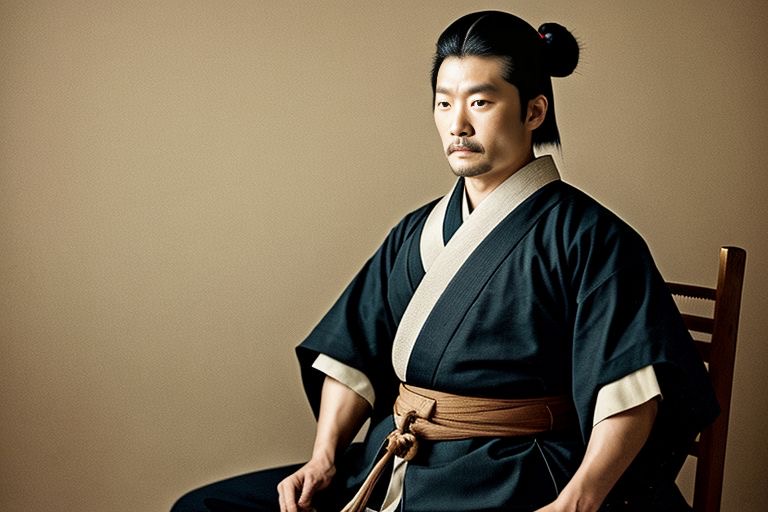The Last Stand of Hijikata Toshizo: A Samurai's Tale
- Japanese Kanji: 土方 歳三
- Japanese Kana: ひじかた としぞう
- Hepburn romanization: Hijikata Toshizō

Hijikata Toshizo, born in 1835 in what is now Tokyo, was the youngest of ten children. His early years were marked by personal losses, including the death of his parents, which led him to be raised by his siblings. Despite these challenges, Hijikata grew up to be a striking figure, both in stature and in character.
In his youth, Hijikata sold medicinal remedies and practiced kenjutsu, a Japanese martial art. His skills and interests led him to join the Shieikan dojo, where he met Kondo Isami, a pivotal figure in his life. Together, they joined the Roshigumi, a group that would later transform into the Shinsengumi, a special police force in Kyoto.
The Shinsengumi was a key player during the turbulent times leading up to the Meiji Restoration. Under the leadership of Kondo and with Hijikata as the vice-commander, they became known for their strict discipline and fierce fighting skills. However, internal conflicts and external pressures soon challenged their unity and effectiveness.
Hijikata's leadership was tested during the Ikedaya Incident, where he successfully led a raid that prevented a planned attack against foreigners, which could have altered Japan's history. His commitment to the Shogunate was unwavering, even as the political tides were shifting towards the Imperial Court.
As the vice-commander, Hijikata was known for his strict enforcement of the group's code, earning him the nickname "Demon Vice-Commander." His personal life was marked by sacrifices, including the cancellation of his marriage to focus on his duties.
The Boshin War marked the final struggle between the Shogunate forces and the proponents of the Meiji Restoration. Hijikata led his men through several battles, showing remarkable resilience and tactical acumen. Despite their efforts, the Shinsengumi faced defeat after defeat, and their numbers dwindled.
In the final days of the conflict, Hijikata continued to fight valiantly, leading his remaining men in the Battle of Hakodate. It was during this battle that he was fatally wounded. Before his death, he entrusted his personal effects to his page, symbolizing the end of an era for the Shinsengumi.
Hijikata's legacy lives on through various memorials across Japan and his portrayal in popular culture. He remains a symbol of loyalty and bravery, embodying the spirit of the samurai during one of Japan's most tumultuous periods.
Hijikata Toshizo's life story is a poignant reminder of the complexities of loyalty and the personal costs of living through historical upheavals. His dedication to his beliefs, despite the changing world around him, offers a powerful narrative of resistance and resilience.